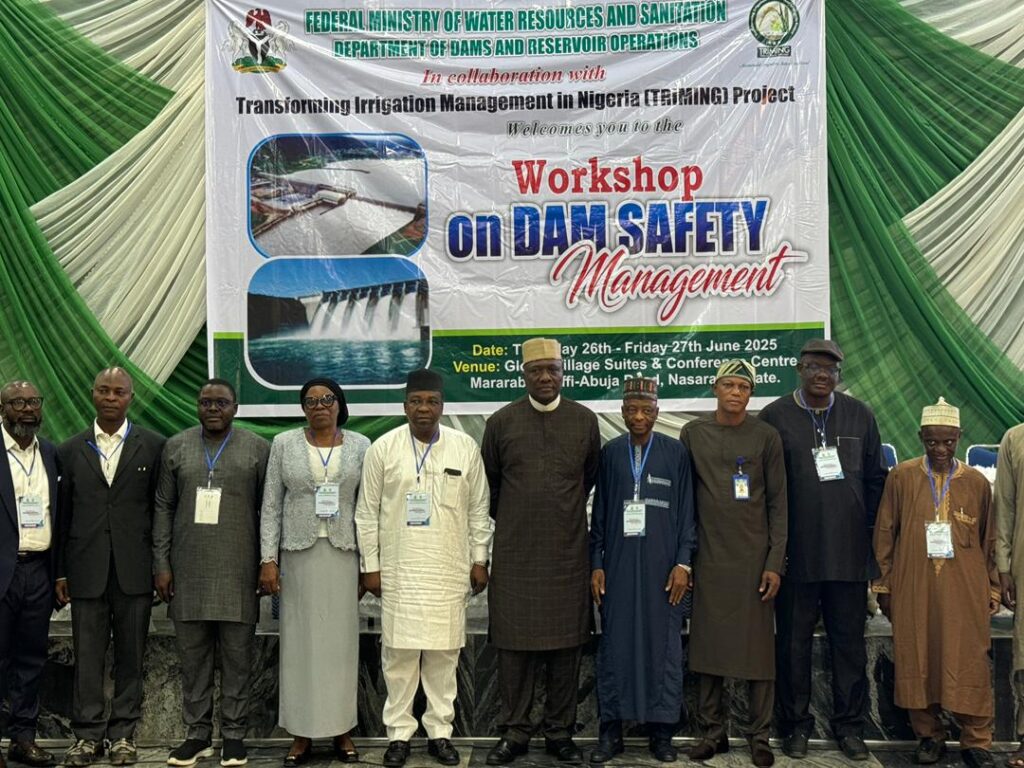From Charity Nwakaudu, Abuja
The federal government has reaffirmed its commitment to ensuring the safety and resilience of Nigeria’s dams, recognising them as critical infrastructure for national development. This was announced by Permanent Secretary, Federal Ministry of Water Resources and Sanitation, Mr Richard Pheelangwah, at a two-day dam safety workshop in Abuja on Thursday, June 26.
Represented by Mr Moses Jo-Madugu, Director of Reforms Coordination, Pheelangwah emphasised the government’s resolve to strengthen dam infrastructure to support irrigation, potable water supply, hydropower, and flood management. “Dams are critical national assets, but they also present significant risks if not properly managed. Ensuring their safety is vital for protecting lives, livelihoods, and property, and is central to achieving the objectives of the SPIN Project,” he said.
He highlighted collaboration with development partners, including the World Bank, to adopt best practices such as early warning systems, emergency preparedness, and climate adaptation strategies. The workshop, part of the Sustainable Power and Irrigation for Nigeria (SPIN) Project, aims to foster knowledge sharing and collaboration among dam operators nationwide. Pheelangwah urged participants to apply lessons learned to enhance dam safety management and stressed that all dam owners must adhere to established safety frameworks.
Permanent Secretary, Ministry of Power, Mahmuda Mamman, underscored the role of dams in water supply, flood control, irrigation, and hydropower generation. “Their safe and efficient operation is essential to national development and must remain a top priority in our infrastructure and energy agendas,” he said. Mamman noted that the Ministry of Power is leading the hydropower component of the SPIN Project, collaborating with the Ministry of Water Resources to develop a national hydropower development master plan to encourage private sector participation through Public-Private Partnerships (PPPs).
Dr. Martins Eduvie, Acting Director-General of the National Water Resources Institute (NWRI), Kaduna, called for stronger institutional mechanisms to safeguard Nigeria’s over 420 registered dams. He noted that while these dams support critical functions like irrigation, water supply, and energy generation, their management is often inadequate. Eduvie cited the recent Mokwa, Niger flooding incident caused by debris-blocked railway drainage channels as a reminder of the risks of poor infrastructure oversight.
Director of Dams and Reservoir Operations, Mr. Ali Dallah, emphasized that dam safety is crucial for food production, water access, electricity, and flood control, urging that it must not be taken lightly.


